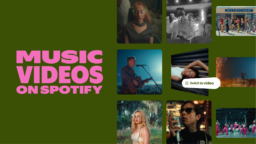
A specialist in both distribution and services for independent artists and labels, Believe also owns DIY platform TuneCore and works with its own family of labels, including All Point, Naïve, Nuclear Blast and Tôt ou tard. To give you an idea of Believe’s magnitude, the company tells MBW that it employs over 1,200 people worldwide, and realized around $700m in digital revenues last year. The firm has seen an average 40% annual growth in group turnover across the past three years.
The CEO of Believe, Denis Ladegaillerie (pictured inset), has agreed to pen a series of dispatches, exclusively for MBW, giving insights into what’s happening to the industry during the global COVID-19 pandemic – offering specific advice for artists and managers. (Believe’s own, recently-released Creative Marketing Playbook is packed with further guidance for artists right now, and we recommend you check it out.)
Here, in his first blog for MBW, Ladegaillerie offers his observations on how Coronavirus is affecting streaming consumption worldwide – and why, if they’re keen to do so, independent artists should be releasing music more frequently than they were before…
This is a time of great uncertainty for artists and record labels. Our partners are all asking the same thing: Where is the world going – and what should I be doing?
Many of the artists we work with have lost their live revenues, meaning that they are focusing more than ever on their recorded music and trying to maximize revenues from their releases.
We’re not giving just one type of advice to artists right now; it really depends on which type of artist we’re talking to.
If you’re an artist who has been heavy reliant on physical revenues, especially amongst older demographics, then of course you should be thinking about postponing your physical album releases. You don’t need me to tell you that the shops out there are closed, limiting your options for selling your records.
However, you should also consider releasing singles or EPs (including with tracks from your upcoming albums) to pave the way for your future album release.
On the other hand, if you are an artist who is digitally-driven with a very strong fanbase, it’s actually in your interest to release rapidly right now.
“With fewer new big releases, artists who release music during a quiet time benefit. If they have strong and engaged fanbases, they benefit even more.”
That’s especially true if you’re an independent artist because, as you know, major labels are postponing a lot of big releases – and artists make their money from streaming in terms of the market share they achieve. With fewer new big releases, artists releasing music during a quiet time benefit. If they have strong and engaged fanbases, they benefit even more.
I’m pleased to see a pattern of more frequent releases is already happening: Uploads via TuneCore have increased very significantly, and we have broken our daily record for new artists and new releases uploaded on the platform several times in the past two weeks.
So our advice to most independent artists – especially to independent hip-hop artists, where 90% of revenues typically come from digital music – is simple: keep releasing.
All of the major streaming services, especially in the past fortnight, have remained very active in their discussions with companies like Believe.
In week one of confinement we saw these services move to push more catalog and laid-back or relaxing music to users, which you can understand. But what we’re hearing now from most of these platforms is, ‘Hey, we have a very large audience of young people out there who are eager to listen to new material; please make the music available so we can engage them.’
“We’ve had a lot of conversations with our partners – Apple, Spotify, Deezer etc. – and what we typically hear is that paid subscribers are continuing to grow; as markets have gone into confinement, a couple of services say they’ve actually seen acceleration in paid subscription uptake.”
Believe has teams that specialize in crunching data, and they have been having weekly conversations with all digital services around the world during the COVID-19 situation so we know what’s going on.
We’re seeing our release strategy being supported by the following factors:
- In the countries that have gone into confinement, streaming volume has dropped by around 15-20%. That lower usage is probably a factor of people probably exercising a little less, having no commute, maybe the kids are home so they have less time available to listen to music. However, streaming volume is only one part of the equation, and actually it’s the part of the equation that matters least;
- What matters more is: are paying streaming subscribers still there – and are the total number of subscribers growing? For a company like Believe and for most of our label partners in major territories, paid streaming contributes around 70%-75% of revenues. We’ve had a lot of conversations with our partners – Apple, Spotify, Deezer etc. – and what we typically hear is that paid subscribers are continuing to grow; as markets have gone into confinement, a couple of services say they’ve actually seen acceleration in paid subscription uptake;
- Remember that Spotify is a public company – they have not yet issued any warning on revenues; if they’d anticipated a significant drop, you might expect they would have communicated to investors about it;
- When we look at the country that has been in COVID-19 confinement the longest, China, the likes of NetEase and Tencent Music have experienced an acceleration of paid subscribers.
All of that is good news for artists in the biggest music industry territories, where paid subscription is a very significant part of the revenues.
However, we also work with artists and labels reliant on markets in Asia and Latin America where the biggest source of revenues is free services like YouTube – which is obviously advertising-driven.
Our advice there differs slightly: you can keep releasing in these territories, but – especially if you’re a label – we’re advising our partners to anticipate losing 30% or even 40% of ad revenues in the coming weeks, maybe the coming months. That’s because, although we’re seeing usage of ad-supported video services increase in these markets, advertisers are progressively pulling revenues which is causing a drop.
When you look at the stock price of Google, whose main source of revenue is online advertising, it’s fallen between 30% and 40% in the past couple of months; that’s probably not a bad proxy for what’s going to happen to artist and label revenues due to COVID-19.
“We’re advising our partners to anticipate losing 30% or even 40% of [streaming] ad revenues in the coming weeks, maybe the coming months.”
Our advice to labels reliant on these territories is to preserve cash if they can, and take into account that their main revenue line might fall. Consequently it may be wise to adjust advance levels accordingly when negotiating deals, depending on what those deals might subsequently pay out.
I know that’s not good news, and I do not enjoy writing it, but we pride ourselves on being honest with our label and artist partners. We would much rather say, ‘This is what’s going to happen, so please get ready as best you can,’ than leave people unprepared.
We feel that we have a responsibility to pass market intelligence to our clients – whether that’s the good news of subscription growth continuing, or the less good news of of ad-supported revenues decreasing.
Only when labels and artists are armed with real knowledge and information can they properly adapt how they do business.
[Pictured: Nuclear Blast-signed NIGHTWISH, whose new album, Human II Nature, is due for release later this month]Music Business Worldwide





